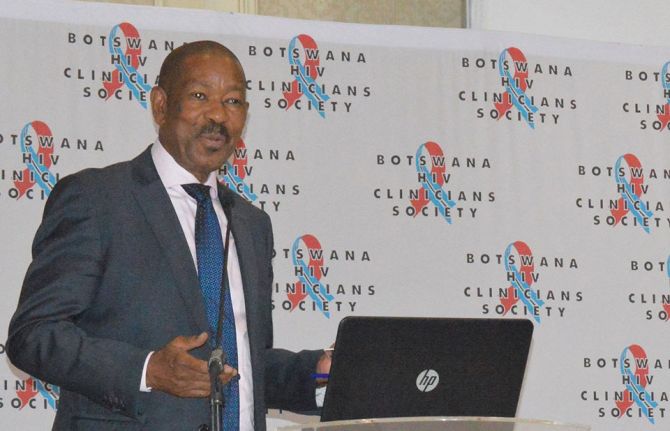

Feature Story
Botswana to revitalize HIV combination prevention
28 August 2018
28 August 2018 28 August 2018The National Coordinator of Botswana’s National AIDS Coordinating Agency, Richard Matlhare, has warned that complacency risks derailing the country’s AIDS response.
“The government is committed to ending the AIDS epidemic,” he said at the Botswana International HIV Conference, which took place in Gaborone, Botswana, from 23 to 25 August. “The new National HIV and Strategic Framework 2018–2023, to be launched later, has positioned HIV prevention as a game-changer to achieve epidemic transition.”
In the 16 years since HIV treatment was first made available in its public health sector—one of the first countries in Africa to do so—Botswana has made significant progress on HIV treatment, with 84% of people living with HIV accessing treatment in 2017. However, fewer gains have been made in the area of HIV prevention, with the number of new HIV infections increasing from 13 000 in 2010 and to 14 000 in 2017.
In the face of these figures, Botswana is making efforts to revitalize its HIV prevention response. It has recently joined the Global HIV Prevention Coalition and the President, Mokgweetsi Masisi, has expressed his commitment to ending AIDS in Botswana. “How Botswana succeeds as a country will impact on the success of the Global HIV Prevention Coalition as a whole,” said Sheila Tlou, Co-Chair of the Global HIV Prevention Coalition, during the opening of the conference.
Efforts to revitalize HIV prevention in the eastern and southern African region include galvanizing high-level political leaders, policy-makers, community leaders, researchers, academic institutions, civil society and development partners for increased accountability and investment in HIV prevention. It requires countries to Fast-Track implementation and service delivery along the five pillars of HIV prevention, focusing on young women and adolescent girls, key populations, condoms, voluntary medical male circumcision and pre-exposure prophylaxis.
“The global AIDS response is at a precarious point. We’ve achieved partial success in saving lives, but these successes are giving way to complacency in HIV prevention,” said Jyothi Raja Nilambur Kovilakam, the UNAIDS Country Director in Botswana.


